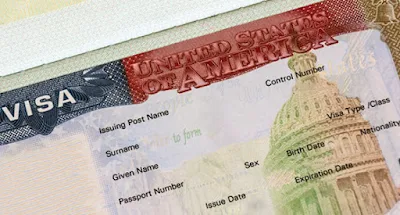New U.S. Visa Rule Limits Nigerians to One-Time Entry, 3-Month Validity
The United States has introduced stringent new visa restrictions for Nigerian citizens, limiting most non-immigrant and non-diplomatic visas to a single entry with a three-month validity period, effective immediately. The U.S. Embassy in Nigeria announced the policy change on Tuesday, July 8, impacting thousands of Nigerians seeking to travel for tourism, business, education, or cultural exchanges. Visas issued before July 8, 2025, will retain their original terms, including multiple-entry permits valid for up to five years.
The U.S. Department of State cited its global visa reciprocity process as the rationale, aligning visa policies with how U.S. citizens are treated by other countries. The embassy highlighted three key criteria Nigeria must meet to improve its reciprocity standing: issuing secure travel documents with verifiable identities, managing visa overstays effectively, and sharing relevant security and criminal record information with U.S. authorities. “U.S. visa criteria are designed to protect the integrity of our immigration systems, based on global technical and security benchmarks,” the statement read.
The policy shift reverses a 2023 decision that extended B1/B2 visitor visa validity for Nigerians to five years, a move that had eased travel for business and tourism. Now, affected visa categories, including B1/B2 (business/tourism), F (student), M (vocational training), and J (exchange programs), will face tighter restrictions, with single-entry permits complicating frequent travel. The change has sparked concern among Nigerian students, professionals, and diaspora communities, who fear increased costs and logistical challenges. A single-entry visa, with fees unchanged at $185, offers less flexibility than the previous multiple-entry system.
Posts on X reflect mixed sentiments, with users like @Olufemiloye lamenting the downgrade from “a 5-year multiple entry visa to a 3-month single entry visa,” while @oforokeke speculated that exceptions might apply given the embassy’s use of “most” in its statement. The policy follows earlier U.S. measures, such as requiring F, M, and J visa applicants to set social media profiles to public for enhanced vetting, a step aimed at verifying identities under U.S. law.
The U.S. Mission commended Nigeria’s efforts to align with international best practices, noting ongoing collaboration with Nigerian immigration and security agencies. “We continue to engage with Nigerian officials to address remaining challenges,” the embassy stated, emphasizing its commitment to deepening U.S.-Nigeria ties through educational, cultural, and business exchanges. Nigerian travelers were urged to comply with visa terms and ensure authentic, up-to-date travel documents to avoid penalties.
Critics argue the restrictions reflect broader U.S. immigration tightening under the Trump administration, with some pointing to Nigeria’s own policy of issuing single-entry, three-month visas to Americans as a trigger for reciprocity. As Nigeria works to meet U.S. benchmarks, the policy will be subject to regular review, potentially allowing for future adjustments to entry allowances or validity periods. For now, Nigerian travelers face a new era of limited access to the U.S., prompting calls for diplomatic efforts to restore more favorable terms.
